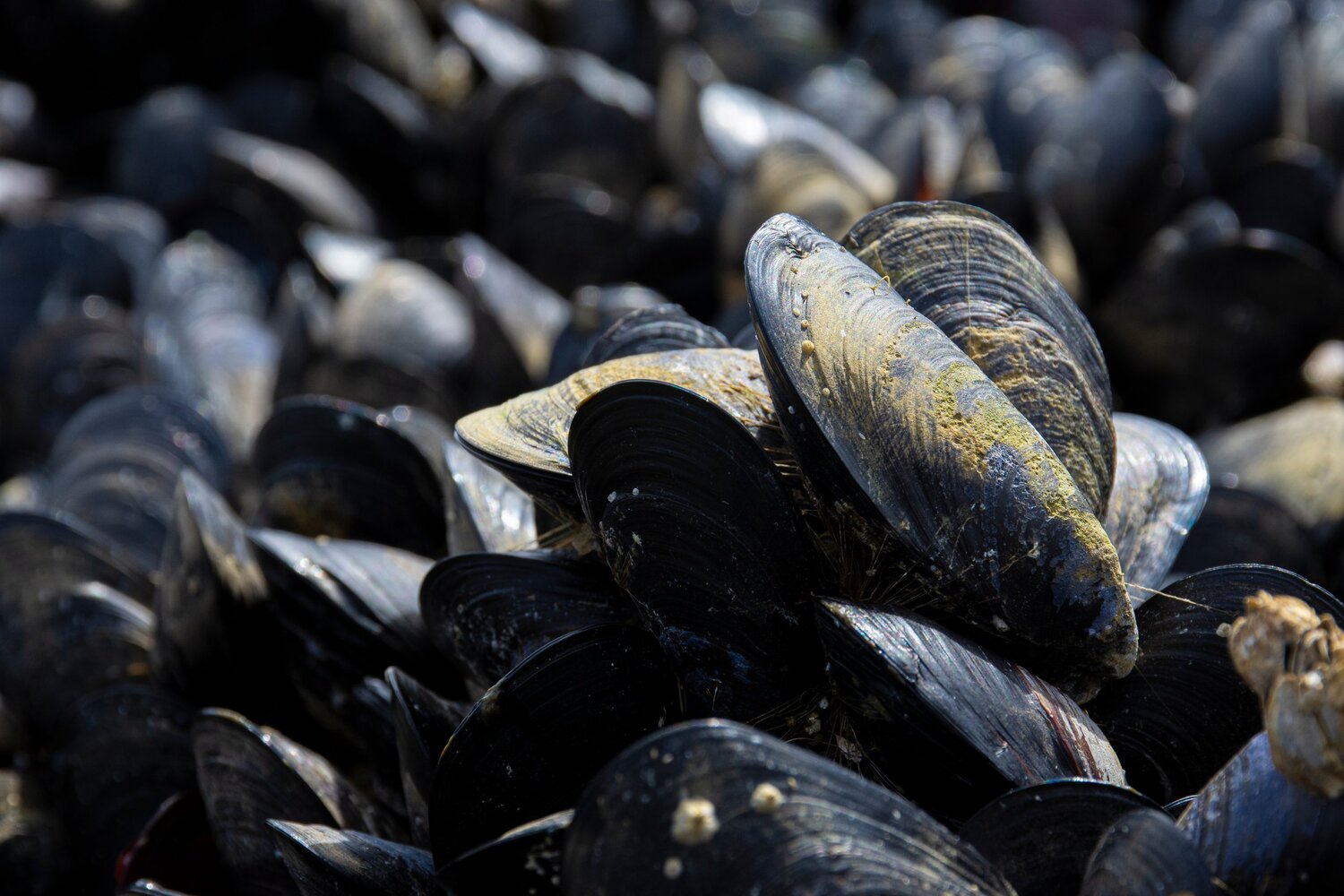Mussels are not only a popular delicacy in many world cuisines but also fascinating creatures from a biological and ecological perspective. They live in coastal waters, form dense colonies, and play a vital role in marine ecosystems. Thanks to their lifestyle, mussels can filter water, serve as a source of protein, and help scientists monitor environmental conditions. You might not have known that these small bivalve mollusks hold many surprising and valuable secrets. In this article, you’ll discover the most interesting and informative facts about mussels.
- Mussels belong to the class of bivalve mollusks and live in both saltwater and freshwater environments. They form colonies and attach themselves to rocks or hard surfaces using fine threads called byssus. These threads are so strong that scientists are studying them for use in natural adhesives.
- In the wild, mussels can live for 10 to 20 years depending on the species and habitat. They grow slowly, and each shell stores information about environmental conditions, much like tree rings. Scientists use this data to study climate changes and water quality.
- Mussels are filter feeders that consume microscopic algae and organic particles by filtering water through their gills. A single mussel can filter up to 25 liters of water per day. This makes them natural purifiers of aquatic ecosystems.
- Mussels can accumulate heavy metals, toxins, and other pollutants in their bodies. Because of this, they are used as bioindicators of water pollution. Researchers analyze mussel tissue to determine the contamination level of a marine environment.
- There are over 17,000 species of bivalve mollusks in the world, with around 80 recognized as edible mussels. The most common varieties are Mytilus edulis and Mytilus galloprovincialis. Different species vary in taste, size, and farming requirements.
- Mussels begin life as free-swimming larvae before settling on a hard surface. Once attached, they remain fixed in one place for the rest of their lives. They are mobile only during their earliest developmental stage.
- The largest mussel farms are found in Europe, China, Chile, and New Zealand. They are cultivated on suspended ropes in clean coastal waters. This method ensures high-quality production with minimal environmental impact.
- In medieval Europe, mussels were considered food for the poor because they were easy to collect along the shore. Today, they are seen as a delicacy and served in fine restaurants around the world. Recipes with white wine, garlic, and cream are especially popular.
- Mussels are highly nutritious and rich in protein, iron, vitamins A, D, B12, and omega-3 fatty acids. They are also very low in fat. This makes them an excellent choice for a healthy diet.
- Mussels cook quickly, usually in just a few minutes. They are typically steamed or boiled in broth, and their shells open when properly cooked. Mussels that remain closed after cooking should not be eaten.
- Mussels play an important role in the culture and traditions of coastal communities. In Belgium, for example, the start of mussel season in July is celebrated with festivals and food fairs. It is a major culinary event in the country.
- Mussel shell color can vary from dark blue to amber depending on species and region. The inside of the shell is often pearlescent, with blue or violet hues. This material is used to make jewelry and decorative items.
- In countries like Japan, mussels are used not only for food but also in cosmetics. Extracts from mussel shells are included in creams and masks due to their moisturizing and protective properties. Their bioactive compounds are also being studied in medical research.
- Eating fresh mussels requires caution, as improper storage can lead to food poisoning. They should only be purchased from trusted sources. Packaged mussels must be refrigerated and consumed before their expiration date.
These incredible and interesting facts about mussels show that they are much more than just seafood. They play an important ecological role, offer high nutritional value, and are used in various scientific and cosmetic fields. Mussels are a perfect example of how nature combines beauty, function, and benefit. The more we learn about them, the more we appreciate their significance.





